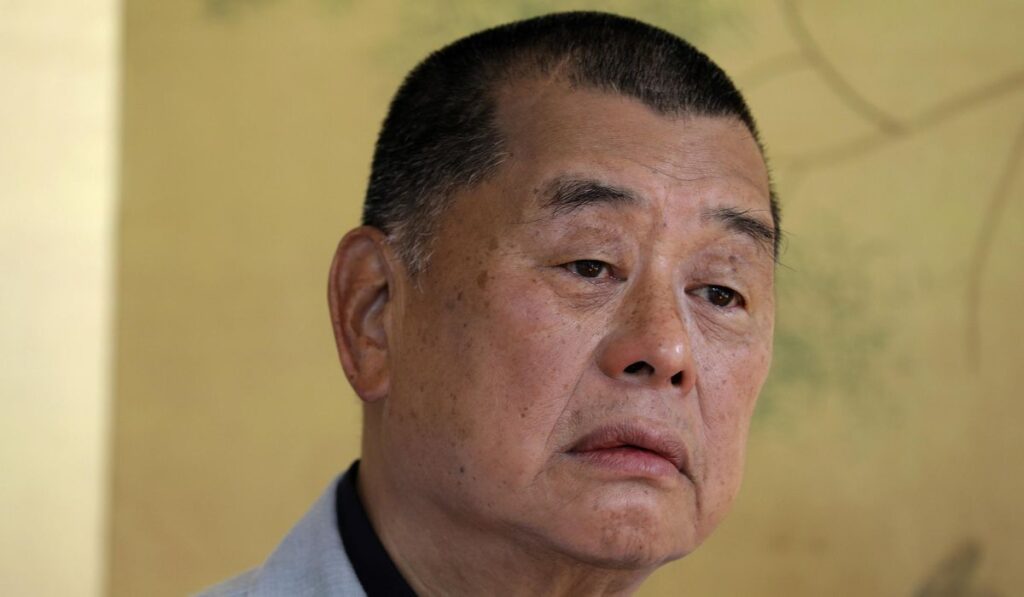The story: a bipartisan group of more than 30 U.S. senators, led by Rick Scott of Florida, pressed President Trump to raise the case of pro-democracy leader Jimmy Lai when he met Chinese President Xi Jinping, arguing that securing Lai’s release should be part of high-level talks and a measure of U.S. resolve on human rights and Hong Kong’s freedoms.
More than 30 senators signed a letter urging the president to press China on a narrow but powerful point: the fate of Jimmy Lai. The message was clear and public, and it arrived as President Trump prepared for a meeting with Xi that would shape U.S.-China relations across trade, security, and human rights. Republican voices, led by Senator Rick Scott, framed the request as a test of leverage and principle in talks with Beijing.
Jimmy Lai is a high-profile figure in Hong Kong’s pro-democracy movement and the founder of Apple Daily, a newspaper known for its critical coverage of Beijing. He has been detained under Hong Kong’s national security law, a move critics say is aimed squarely at silencing dissent. For many U.S. lawmakers, Lai’s detention is not just a legal case but a symbol of the broader erosion of freedoms promised to Hong Kong residents.
The senators’ approach was overtly political, but the concern crosses party lines. Calling out human rights abuses can be unpopular or convenient to avoid, yet these lawmakers reminded the administration that American diplomacy is judged not only by tariffs and trade balances but by whether it can protect dissidents. From a Republican point of view, standing firm on human rights strengthens U.S. credibility and bargaining power in any negotiation with Beijing.
Republicans argue that talks with China must include tangible results on human rights and political prisoners, because economic cooperation without moral firmness hands Beijing a blank check. They believe that if the U.S. negotiates tough on trade but remains silent on political repression, it undermines American leadership. Pressing for the release of a single prominent detainee like Jimmy Lai becomes a symbol for a larger commitment to democratic principles.
There are practical tools available to the U.S. government that senators referenced implicitly: diplomatic pressure, public naming of abuses, and coordinated measures with allies. Conservatives often favor leverage that aligns with broader national security and economic aims, using penalties or restrictions targeted at officials and entities responsible for repression. The argument from this angle is straightforward: use the full range of statecraft, not just rhetoric.
The fact that the push came from a bipartisan group matters politically because it signals shared concern beyond partisan point-scoring. When senators from both parties unite on an issue, it increases the administration’s room to act without the optics of raw partisan politics. For Republicans, that unity also helps frame the case as one about defending liberal order and American interests rather than simple partisan advantage.
Diplomatically, the timing was calculated: raising Lai’s case just before a summit with Xi put human rights on the agenda without derailing talks on other priorities. The request was blunt: use the meeting to press for Lai’s freedom and to make clear that cooperation with China must come with accountability. For conservative lawmakers, this is a test of whether the U.S. will translate leverage into outcomes that protect dissidents and uphold international commitments.
What happens next depends on the balance between strategic interests and moral imperatives in Washington’s dealings with Beijing. Republicans pushing this line see it as a necessary assertion of American values that also serves long-term strategic goals. Observers will watch whether the administration prioritizes individual cases like Jimmy Lai’s, and whether that emphasis shapes future negotiations with China on trade, security, and human rights.



